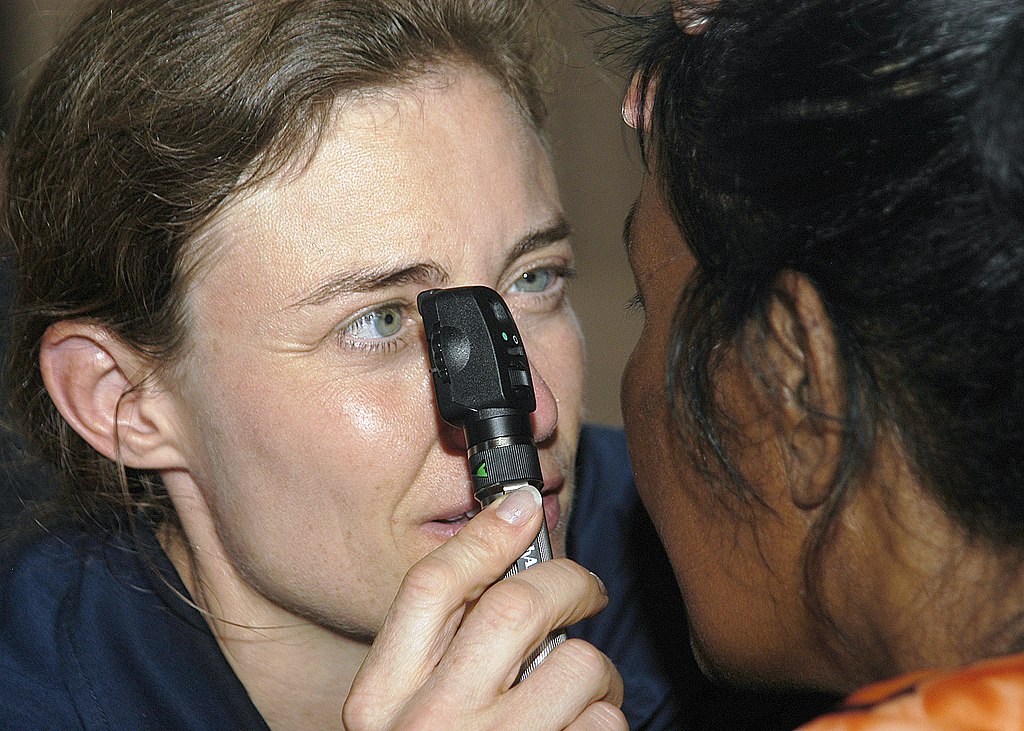1 John 4:7-21 (NRSV)
By Greg Crofford
This sermon was preached on January 8, 2023 at Norwin Church of the Nazarene, Irwin, PA.
INTRODUCTION
Jay Withey, 27, got caught in a terrible snowstorm in Buffalo, NY the weekend of Christmas. According to a report on CBS Mornings, Jay knocked on the door of several houses where he saw lights, and even offered $ 500.00 if he could stay the night on the floor. Every time, he was turned away. He went back to his car, and picked up two strangers who huddled with him. They ran the engine for heat, until the gasoline was gone. Desperate, Jay noticed a light on in an elementary school, and broke a window to gain entry to the warm building. He then went out back out into the storm several times, inviting others into the building, including some elderly. They found food in the cafeteria and sheltered overnight until the storm subsided the next day. Jay left a note for the school principal, apologizing about the break-in and accounting for what they had eaten. School authorities released his note to the public, along with photos from school security cameras showing people wrapped up in blankets around cafeteria tables. It soon became clear: Jay was no burglar. He was a hero, and had bravely saved two dozen lives.
TRANSITION TO 1 JOHN 4
It’s a wonderful story because it has several angles. Why did Mr. Withey have to break into the school in the first place? Why wasn’t the school just open to begin with, as a storm shelter? That’s certainly a good discussion to have, maybe at the next meeting of the school board, or Buffalo city council. But today I’d like to look at this story with a happy ending through the lens of fear and love. Faced with a stranger at their door, people had to decide: Do I let him in, or do I turn him away? What emotions are at play in-the-moment that push us in one direction or the other? Today, let’s look at those two words – fear and love – in the light of 1 John 4:7-21, then we’ll finish with three recommendations that can help us both individually and as a church live out the Gospel.
FEAR
First, let’s talk about fear. There are types of fear that are healthy. For example, we know that there are evil adults who prey on children. It’s normal and necessary for parents to teach their children about “stranger danger.” A second healthy type of fear is reverence or respect. This is what we mean when saying we should “fear God.” It’s a good thing to be God-fearing, and when I look at our society today, we need to recapture our respect for God.
1 John 4:18, however, is about another kind of fear altogether, one that is unhealthy. The Greek word for “fear” in this verse is phobos. This is where we derive the English word “phobia.” Webster’s Online Dictionary defines “phobia” as an “exaggerated usually inexplicable and illogical fear of a particular object, class of objects, or situation.” An example of this might be the fear of heights (acrophobia) or the fear of tight spaces (claustrophobia). Notice that fear is illogical. It doesn’t make a lot of sense when you analyze it. Instead, it just wells up as an emotion in the moment. Fear can paralyze us. That’s why a lion roars first before it attacks a gazelle. It paralyzes its prey by instilling fear, giving the lion time to pounce. A second response to fear is withdrawal. It’s a defensive response, like a clam closing up or a crab scurrying behind a rock on the ocean floor. It’s the little West African boy who lived on the remote island who apparently had never seen a white missionary before. When he saw me and another missionary coming down the trail, he jumped into some reeds and peeked out at us, his eyes big.
John says in the same 18th verse that “fear has to do with punishment.” The believer need not fear the day of judgment. According to verse 17, on that day, we can have boldness. How so? If we have asked God to forgive us our sins – the wrong things we have done or the good things that we’ve refused to do – then we have been adopted into God’s family. We can have confidence because God has transformed us and sealed us with the Holy Spirit (see Ephesians 4:30).
John is never satisfied to stop with the human/divine aspect, the vertical dimension. Having looked ahead to Judgment Day, he returns to the present and considers the human/human dimension, the horizontal aspects. What does it look like in our relationships with each other when fear is allowed to dominate? Beginning in verse 20, John answers this question. He writes: “Those who say, ‘I love God’ and hate their brothers or sisters, are liars; for those who do not love a brother or sister whom they have seen, cannot love God whom they have not seen” (1 John 4:20, NRSV). Like a weed, when fear takes root, love is choked out.
LOVE
This brings us to the second major word in 1 John 4:7-21. That word is love. The stores have already marked down and sold all the leftover Christmas items. Have you seen what they put in their place? It’s all about Valentine’s Day! In fact, the first kind of love that usually comes to mind when we use that word is romantic love, from the Greek word eros, from which we derive the English word erotic. A second word for love is philia, or “brotherly love.” So we say “Philadelphia,” the city of brother love. But in our passage, the Greek noun for love is agape. The NRSV translates this noun and its various verbal forms as “love” and as such it appears 27 times in this passage. For this reason, John has been called the “apostle of love.” Agape is the kind of selfless love that originates in God but is exemplified in life-giving interactions between human beings who reflect God’s image. Agape is “love that seeks the welfare of all” (Vines, 1981; see “love”). Michael Curry describes agape as “love that looks outward” (Love is the Way: Holding on to Hope in Troubling Times [2020], 14).
John speaks not only of love, but “perfect love.” Perfect love is love that is complete, lacking nothing. If love were cheese, then perfect love would be cheddar cheese aged to sharp deliciousness. If love were chocolate, then perfect love would be a Hershey’s bar with almonds. If love were athletic ability, then perfect love would be Franco Harris’ “immaculate reception.” Perfect love is love that has reached its ultimate form and cannot be improved.
And so we come to 1 John 4:18 – “There is no fear in love, but perfect love casts out fear.” As a holiness preacher, I’ve always wondered why this verse doesn’t say “perfect love casts out sin.” John Wesley described God’s work of sanctification in our hearts as “love excluding sin.” Yet here we read that loves casts out fear. Rick Williamson notes that the term for “cast out” (exo ballei) is the same term used when describing Jesus who cast out devils (See Williamson, New Beacon Bible Commentary, 1, 2, 3 John: A Commentary in the Wesleyan Tradition [2010], 151).
What is John saying? Love and fear cannot co-exist in our hearts. If love takes the upper hand, fear will be banished. “Perfect love casts our fear.” But I wonder: Have we sometimes let perfect fear cast out love? Does the media we consume – the news channels we watch, the websites we read, the radio commentary that we listen to – stir-up in us fear of others, or does it encourage love and compassion for others? John teaches us in this passage that when we open our hearts to fear, hatred is never far behind. Likewise, when we open our hearts to love, then God abides within us, and we begin to look just like Jesus. In verse 17, John puts it this way: “Because as he is, so are we in this world.”
THREE RECOMMENDATIONS
So far we’ve looked at fear, and saw that stirring up fear can allow our love to wither and open the door to hatred. We also discovered that love is the antidote to fear and hatred, that “perfect love casts out fear.” Now let’s take a few minutes to consider three recommendations for living out 1 John 4:7-20 both individually and as a church family:
- Lead with love. In Mark 10, the rich young ruler came to ask Jesus what he needed to do to inherit eternal life. Jesus didn’t beat around the bush. He told him to go and sell all that he had and give it to the poor, but sometimes we skip right over Mark’s aside about Jesus’s demeanor just before issuing that command. Mark 10:21a records: “Jesus looked at him and loved him.” Jesus always leads with love. In the same way, St. Francis instructed his monks: “Preach always. When necessary, use words.” The old adage is still true: “People won’t care how much you know until they know how much you care.” Sometimes I wonder how many opportunities to share our faith we’ve short-circuited because we got preachy before we even earned a hearing.
- Avoid enlisting in the latest fear-driven crusade. Most Church historians agree that the low-point for Christianity came between the 11th and 13th centuries when Christian “crusaders” raised armies to take back Jerusalem and the Holy Land from Muslims. The atrocities done in the name of Christ will always be a black-eye for Christianity. I wonder if that same counterproductive crusading spirit lives on today in the various culture wars we’re asked to join? Sometimes it seems like we’re asking non-Christians in our country to behave in Christian ways, when that’s nothing they ever signed up for. Why should they be subject to a Book they’ve never agreed to as their guide, whatever the Bible might be for us as believers? It’s worth asking whether lurking beneath the surface of Christian action against x, y, or z is the fear factor, fear that we are being sidelined in a society that seems less-and-less interested in what we have to say or in supporting the church? I certainly don’t have all the answers; I’m not sure I have any answers about how to win back those who used to be with us but are long gone. What I do know is this: John is calling us away from fear, and calling us back to love. Madeleine L’Engle put it this way: “We do not draw people to Christ by loudly discrediting what they believe, by telling them how wrong they are and how right we are, but by showing them a light that is so lovely that they want with all their hearts to know the source of it.”
- Trust in God’s prevenient grace. Prevenient grace is the action of the Holy Spirit that draws men, women, and children to God. It is God in love reaching out before we ever did, God taking the initiative. 1 John 4:10 teaches: “In this is love, not that we loved God but that he loved us and sent his Son to be the atoning sacrifice for our sins” (NRSV). If we believe that God has already been working in the heart of every human being at some level long before we encounter them, how can we possibly fear them? They may look different than we do, come from a different country, speak a different language, dress differently, like different music, or a dozen other factors, but this we have in common: God wants to draw them to Christ in the same way that God drew us! Which course of action will better allow us to become partners with God in their salvation – fear, or love?
CONCLUSION
On Christmas weekend, Jay Withey, 27, got caught in a Buffalo snowstorm and sought shelter. He knocked on doors, but everyone in fear turned him away. Norwin Church of the Nazarene: Who is knocking on our door? Will we turn them away? God forgive me when I have allowed my fear to banish my love. Instead, together, let us lead with love, avoid enlisting in fear-driven crusades, and trust in God’s prevenient grace. May perfect love cast out our fear, today and always.
SHALL WE PRAY…
_____________________
Image credits
Jesus: Thecatholicguy, CC BY-SA 3.0 https://creativecommons.org/licenses/by-sa/3.0, via Wikimedia Commons
Fear emoji: Vincent Le Moign, CC BY 4.0 https://creativecommons.org/licenses/by/4.0, via Wikimedia Commons
Love: RickObst, CC BY-SA 4.0 https://creativecommons.org/licenses/by-sa/4.0, via Wikimedia Commons












